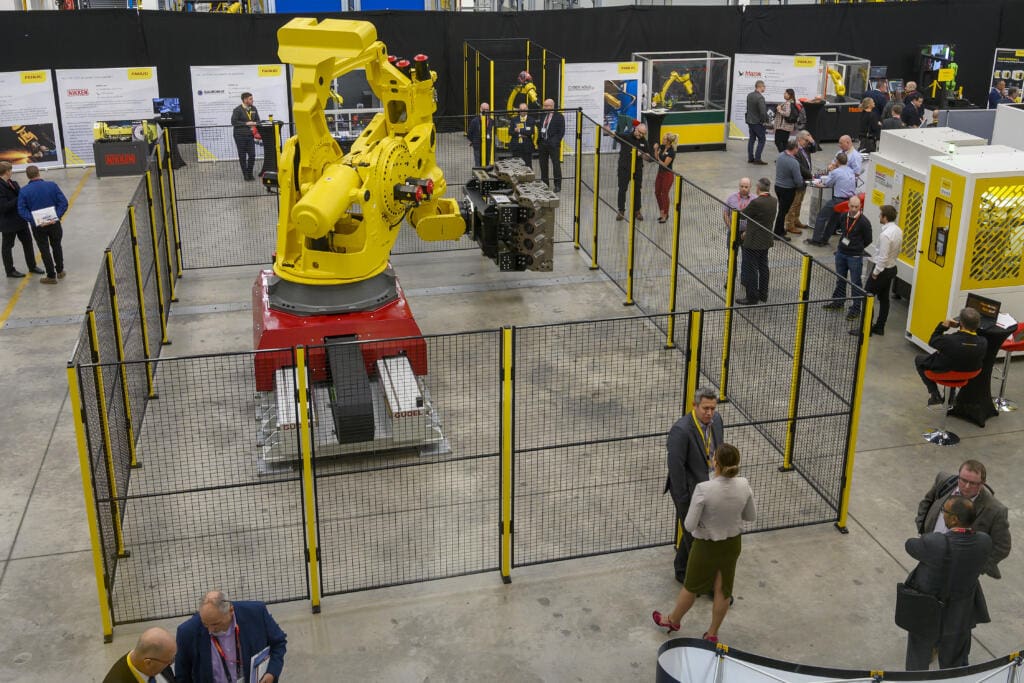
How UK Manufacturers Can Boost Productivity
2021 could be a pivotal year for the industry in the UK, and the extent to which manufacturers adopt automation may determine its long-term success. Starting 2021 with a positive mindset, Tom Bouchier, Managing Director at FANUC UK, outlines the three areas manufacturers must focus on to bounce back this year.
It’s about working smarter, not harder, as Tom Bouchier outlines a three-pronged approach that manufacturers must focus on to come back even stronger this year, with de-fearing automation, skills and training, and funding being fundamental in helping to boost productivity within the industry.
He said: “At a time when the impact of Covid-19 has presented significant challenges to a number of British businesses, we have also seen the resilience of those willing to adapt. Even under the shadow of the latest IFR report on World Robotics[i], which highlighted just how far behind its international rivals the UK is in terms of automation, there are reasons to believe 2021 can be the year for British manufacturing to bounce back.
“There are three key areas that we must focus on if we are to propel UK manufacturing back to its prominent position on the world stage: perceptions of automation, skills and training, and funding. By addressing these three issues head-on and de-fearing automation in the UK, we can significantly enhance the productivity of existing businesses.”
Tom continued: “Perceptions of industrial automation within the UK have long been an obstacle to greater uptake, and a change in the attitude of those within manufacturing is vital in instigating wider adoption. The impact of Covid-19 has, to some extent, affected this, but there has to be an ongoing and concerted effort to educate on the numerous benefits of automation.
“This is where skills and training become even more important. On a fundamental level, this relates to ensuring operators are skilled enough to work with the latest technology. It means creating an appealing and viable entry route for those interested in embarking upon a career in manufacturing, whether that’s via the apprenticeship route or through higher education.
“However, there must also be a focus on engaging with and training the existing workforce. There can be a fear factor among many working in manufacturing when it comes to automation and robotics, and this is something that can be addressed through education. Robots replace roles, not people, and removing a labour-intensive element of someone’s job, with a new skill such as programming, will offer much more long-term value and purpose.
“Finally, even when perceptions and skills are at a level high enough to facilitate the adoption of automation, there needs to be the financial incentive to do so. The ROI of the latest equipment means that investment is quickly paid back in productivity gains, but there needs to be much broader access to funding for those that require initial financial support.”
Tom added: “Tax breaks have often been the go-to method for encouraging investment, and while this is extremely effective for established companies, it does little to help businesses who are early in their lifespan. Cruelly, SMEs are simultaneously the ones who would benefit most from implementing automation, and yet struggle to raise that initial investment, which is why the government must adopt a more bespoke approach to funding these businesses.
“UK manufacturing will continue to face a number of challenges throughout 2021, not least with the ongoing impact of Covid-19 and the uncertainty surrounding Brexit. Addressing the three key areas outlined above will go a long way to ensuring the success of the industry in the short, medium, and indeed long-term.
“Above all, it absolutely vital that British businesses understand they are competing on a world stage. They have to be capable of matching the producitivty of manufacturers around the globe, and industrial automation is key to this.”
Click here for more information on FANUC UK.
FANUC
+44 (0) 24 7605 3000
Website
Email








